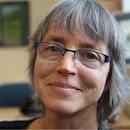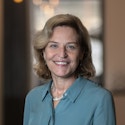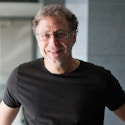By clicking to watch this video, you agree to our privacy policy.
On 23 September, Nancy Kanwisher discussed the functional architecture of the social brain as an avenue for considering which functions are affected and which are preserved in autism.
Her talk was part of the Simons Foundation Autism Research lecture series.
About the Lecture
Humans are a highly social species, allocating numerous brain regions to distinct aspects of social cognition. These regions and corresponding mental abilities serve as tools for understanding which functions are lost and which are preserved in autism.
Autism is characterized by a highly uneven cognitive profile in which some mental functions are preserved or enhanced, and others are disrupted. An important asset in the search to understand this complex disorder comes from the study of the typical human mind and brain.
In this talk, Nancy Kanwisher considered the functional architecture of the social brain as an avenue for considering which functions are affected and which are preserved in autism.




